Biographies of Princeton’s First Football Players
Guest columnist David Nathan ’90 compiled biographies of the 24 known players from Princeton’s 1869 football team, which played the first intercollegiate football games against Rutgers.
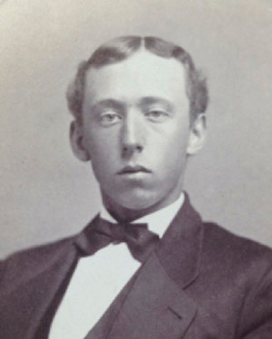
1850-1925
Hometown: Ewing, N.J.
Height: 5' 11.5"
Weight: 162 lbs.
Other intercollegiate sports: none
Occupation: clergy
Coming from preparatory studies at a seminary in Philadelphia, Barrett was one of the top students in the Princeton Class of 1871, graduating with highest honors. He was chosen to deliver a Metaphysical Oration at the 1871 Commencement, and was named the Chancellor Green Fellow of Mental Science. After graduation he studied at the Universities of Edinburgh and Berlin before returning to the Princeton Theological Seminary, after which he received his ordination as a Presbyterian minister. He held pastoral positions in New York, Maryland, and Colorado before returning to New Jersey in 1907, where he resided for his remaining years. In 1915 Barrett was struck by a streetcar and blinded when his glasses broke. He died 10 years later when he fell from the window of an Atlantic City, N.J., hotel. He married in 1905 and had a son when he was 61 years old — the youngest child of the Class of 1871.
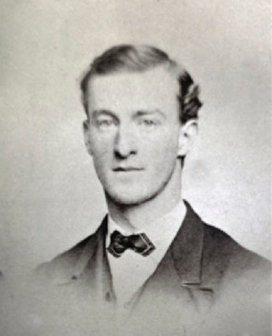
1849-1917
Hometown: York, Pa.
Height: unknown
Weight: unknown
Other intercollegiate sports: none
Occupation: manufacturing
Along with his friend and classmate Homer Boughner, Billmeyer was given the specific position of “captain of the enemy’s goal” during the 1869 season. As the title implies, the two were positioned in front of Rutgers goal, continuously ready to assist the Princeton offense when they approached. He left Princeton before his senior year to attend to family matters, and consequently he never graduated. Billmeyer was a modest man, the son of a railcar manufacturer in York, Pa. He eventually became the president of that company, though he shunned the spotlight whenever it was offered to him, including at his alma mater. Married twice, Billmeyer was known for his philanthropy and civic involvement in York County. He was an officer at numerous utility companies, a fruit company, a turnpike company, a hospital, a school, and the YWCA in his hometown.
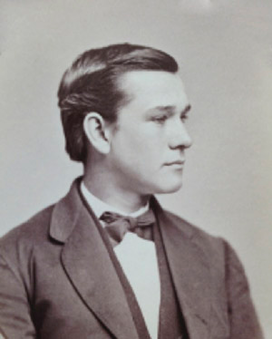
1848-1938
Hometown: Clarksburg, W.V.
Height: 5' 9"
Weight: 146 lbs.
Other intercollegiate sports: none
Occupation: engineering
Born in Pennsylvania and raised in West Virginia, Boughner was one of the top students in the Class of 1871. He was a “captain of the enemy’s goal” during the 1869 season, along with his friend George Billmeyer. After graduation, Boughner became involved in merchandising in his hometown of Clarksburg, W.V. As one of the longest surviving members of the 1869 Princeton football team, Boughner was frequently interviewed about his participation in the historic “first game” until his death at age 90. He was married with three sons and a daughter.
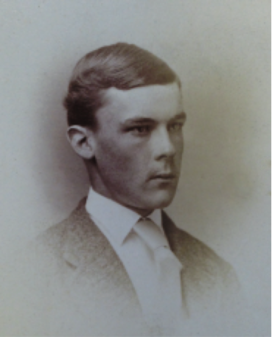
1849-1890
Hometown: Baltimore, Md.
Height: 5' 9"
Weight: 140 lbs.
Other intercollegiate sports: baseball
Occupation: business
Buck was remembered as one of his class’s greatest athletes, serving as captain of Princeton baseball’s “first nine” in his senior year and playing most positions in the field. He led his team to the 1870 intercollegiate championship. After graduation he continued to play baseball in Maryland while spending two years in medical school. His class obituary indicates that he had a checkered career and “passed through many struggles.” A friend wrote that Buck was “a man of extremes, and could pursue no moderate course.” Often living with his sister, who was a positive influence in his life, he never married. He died in Boston on the first day of his 20th Princeton reunion.
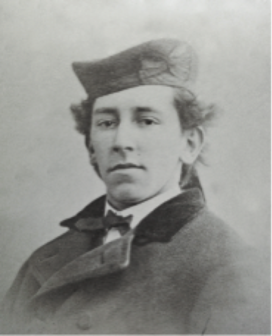
1850-1916
Hometown: Cleveland, Ohio
Height: unknown
Weight: unknown
Other intercollegiate sports: none
Occupation: finance
A native of Ohio, where he spent most of his life, Burt was a published poet and longtime employee of the Nickel Plate Railroad, the St. Louis Railroad, and the Treasury Departments of New York and Chicago. He left Princeton before graduation and spent a Wanderjahr in Europe, where he toured the battle-scarred aftermath of the Franco-Prussian War. In the 30th anniversary book of the Class of 1871, Burt wrote that he was “always wanting to go out to play base-ball or foot-ball or something else, not at all becoming an old man.” According to his 1916 obituary in PAW, “He never married — he who idealized women, longed for home life, adorned [sic] little children — he never had a home, a wife, a child.”
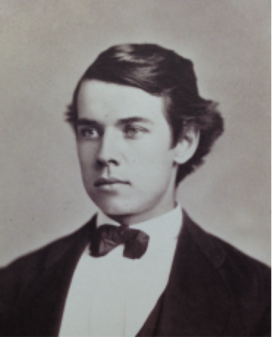
1850-1879
Hometown: Cincinnati, Ohio
Height: 6' 0"
Weight: 175 lbs.
Other intercollegiate sports: gymnastics
Occupation: education
Precious little is written about Chambers, as his life was cut short a mere eight years after graduation. He participated on the gymnastics team in his junior and senior years. Having lived in Piqua and Cincinnati, he returned to his native Ohio after graduation. Chambers married Clara Belle Sullivan in 1878 and worked as a teacher until his death. His loss at 28 years old was deeply mourned by his classmates.

1849-1900
Hometown: Dayton, Ohio
Height: 5' 7"
Weight: 135 lbs.
Other intercollegiate sports: baseball
Occupation: business
Darst was the definition of a scholar-athlete, playing baseball for Princeton’s “first nine” in 1867 and 1868 and receiving academic honors in the Class of 1871. During the 1869-70 academic year when the “first game” was played, Darst roomed with friend and football teammate Dave Mixsell at 5 East College. He was one of three seniors chosen to offer a Classical Greek Oration at the 1871 Commencement. Following graduation he worked in the hat and cap business, married, and fathered three children. He was an active member and elder at his Presbyterian church. Describing Darst as “modest and unassuming in his bearing,” his class obituary declared that there was no one in the class “more loveable or sweeter tempered.” Indeed, many in the Class of 1871 wrote of him as a friend.
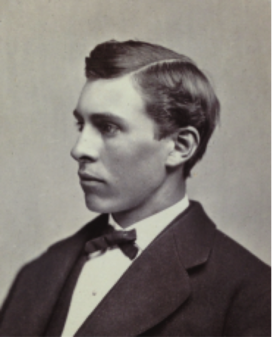
1850-1895
Hometown: Bound Brook, N.J.
Height: 6' 1"
Weight: 165 lbs.
Other intercollegiate sports: baseball & gymnastics
Occupation: medicine
Field was born in Brooklyn to a prominent family associated with the founding of Rhode Island and the American Revolution. He graduated at the top of his class at Lawrenceville before attending Princeton. Field was a fixture in the outfield while playing intercollegiate baseball in his junior and senior years. He was one of two winners of the 1871 George Potts Bible Prize, presented for outstanding skill in bible studies. After graduation he studied medicine at Columbia, where he again graduated “with great credit.” Field never married but had a thriving private practice in Bound Brook, N.J., which became so busy that his health suffered. He needed to cease working for a time and traveled extensively through Europe, the Caribbean, Australia, and Oceana. At the time of his death at 45 years old, Field was again practicing medicine, treating the rich and poor without discrimination, and he was credited with saving many lives with his great surgical skill and medical judgment.
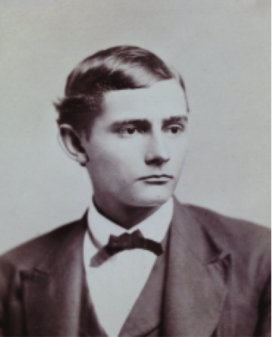
1850-1910
Hometown: Morristown, N.J.
Height: 5' 9"
Weight: 155 lbs.
Other intercollegiate sports: gymnastics
Occupation: finance
While Flagler apparently only competed in gymnastics in his senior year, he managed to win the 1871 Thomson Prize as the “best general gymnast.” Following graduation, he worked as a clerk in the auditing department of the Erie Railroad, living in Lower Manhattan. Flagler married in 1880 and had five children.
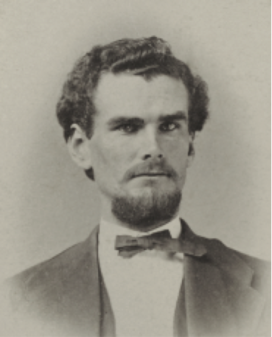
1847-1892
Hometown: Yadkin County, N.C.
Height: 6’ 0 ½"
Weight: 173 lbs.
Other intercollegiate sports: baseball
Occupation: law
Glenn was born in rural North Carolina to a large and wealthy family of planters. He was sent away for his elementary education, later attending the Virginia Military Institute. Glenn served for six months in the Confederate Army when the war prevented him from returning home in 1863. After the war, he spent a year at a preparatory school in Princeton before entering the University. While younger brother Tom 1871 was one of Princeton’s best pitchers from 1868-1870, “Tar Heel” only played as a substitute for Princeton’s “first nine” in 1868, though he was the president of his class the same year. He briefly competed in Princeton gymnastics in 1870. After graduation, Glenn studied law under the chief justice of the North Carolina Supreme Court. He opened a law practice and served in the North Carolina Senate and House of Representatives. According to his class’s 20th reunion book in 1890, Glenn showed “serious symptoms of mental derangement” from which his physicians held “very little hope of his recovery.” He died two years later. His law partner went on to become the governor of North Carolina.
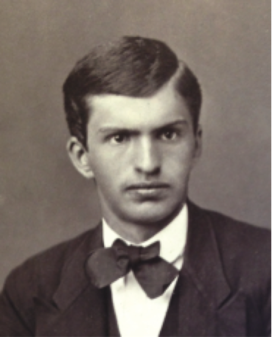
1852-1933
Hometown: Trenton, N.J.
Height: 6' 0"
Weight: 161 lbs.
Other intercollegiate sports: baseball
Occupation: law
Gummere was the captain of the 1869 Princeton football team, and tradition holds that he personally accepted Rutgers’ challenge to play a series of three football games after Princeton had given them a thumping in baseball and the cannon wars. In his junior year, Gummere was a substitute player for the baseball team, while in his senior year he was a starter in center field. In 1869-70, he roomed with “Big Mike” Michael, the star of the football team. Graduating from Princeton at 18 years old, Gummere studied law under his father’s tutelage and was admitted to the bar in 1873. He married in 1876 and had five children, one of whom died in childhood. He was appointed as an associate justice of the New Jersey Supreme Court in 1895 and served as chief justice from 1901 until his death in 1933.

1852-1924
Hometown: Poughkeepsie, N.Y.
Height: 5' 11 ½"
Weight: 174 lbs.
Other intercollegiate sports: baseball, gymnastics
Occupation: clergy
Hageman was a double threat, playing intercollegiate baseball and (briefly) heavyweight gymnastics while at Princeton. He was described as being one of the earliest pitchers to ever throw curveballs. Hageman attended the Union Seminary in New York City from 1872 to 1875, after which he was ordained as a Presbyterian minister. He held a pastoral position in Wausau, Wis., in the 1880s, where he preached sermons that were subsequently published. He received a Ph.D. at New York University in 1891 and married in 1902, at which time he was a former rector of Christ Church in Riverdale, N.Y. By the 1910s, he was living quietly in Ballston Spa, about 100 miles up the Hudson River from his hometown of Poughkeepsie.
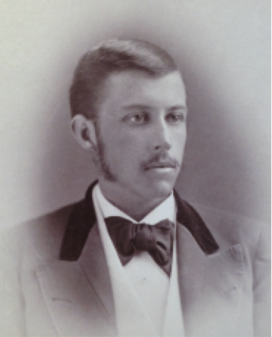
1848-1916
Hometown: Hagerstown, Md.
Height: 5' 6 ½"
Weight: 130 lbs.
Other intercollegiate sports: gymnastics
Occupation: banking
Lane was the oldest of three brothers in the Class of 1872. The youngest of these, William, also played for the 1869 Princeton football team. After graduation, Charles moved to Baltimore to take a banking position with Johnson Brothers. He moved back to Hagerstown in 1874 to become a partner in the newly created Hoffman, Eavy and Lane Bankers, becoming the senior partner in 1903. He sat in leadership positions of private boards and public organizations in Hagerstown. In 1876 Lane married the daughter of Alexander R. McGill, a professor at the Princeton Theological Seminary. All three of Lane’s sons attended Princeton University.
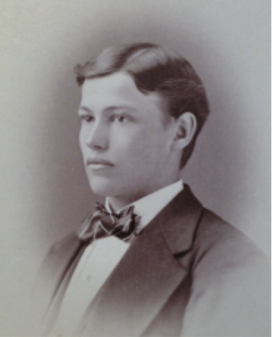
1851-1938
Hometown: Hagerstown, Md.
Height: 5' 5 ½"
Weight: 145 lbs.
Other intercollegiate sports: baseball & gymnastics
Occupation: law, military
Lane attended Princeton with his two older brothers, Charles and John. Charles also played on the 1869 football team. William played baseball and participated in competitive gymnastics. After graduation, he returned to Hagerstown to study law with his sister’s husband and was admitted to the bar in 1874. The brothers-in-law created the partnership of Keedy & Lane, which was one of the premier law firms of western Maryland for decades. William was a lieutenant colonel in the Maryland National Guard and — like his older brother Charles — was an active member of the Hagerstown community. Lane’s first wife and their daughter died young. He married again, having five sons and a daughter. One of his sons, William P. Lane, Jr., became the attorney general and governor of Maryland. Lane was the last known living Princeton participant in the “first game” when he died in November 1938, surviving Homer Boughner by eight weeks.
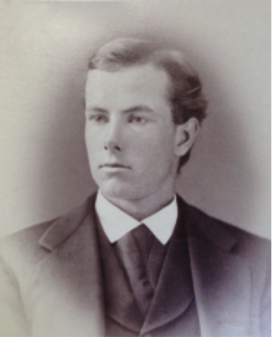
1853-1925
Hometown: New York, N.Y.
Height: 5' 6"
Weight: 130 lbs.
Other intercollegiate sports: baseball & gymnastics
Occupation: assaying, mining
Mann was the youngest member of the 1869 Princeton Football team, playing in his sophomore year at the tender age of 16. He was the starting Princeton shortstop from his sophomore until his senior year, and he also competed in gymnastics. When his wife, Edith Thomson Mann, died in 1942, her will established the George Williamson Mann 1872 Scholarship Fund at Princeton.
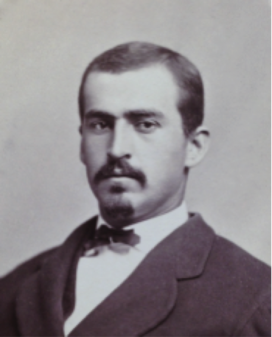
1848-1895
Hometown: Michaelsville, Md.
Height: 6' 0"
Weight: 215 lbs.
Other intercollegiate sports: gymnastics
Occupation: medicine
He was the most strapping member of the 1869 football team, earning him the nickname “Big Mike” and ensuring his legendary status in most narratives of the “first game.” A medical journal’s eulogy spoke of his “magnificent physique” as well as his great intellect. In 1869-70, Michael lived at 28 East College with Will Gummere, the captain of the football team. In 1871, Michael won the Thomson Prize for heavyweight gymnastics. After graduation, he attended the University of Maryland and obtained his medical degree in two years. Michael spent following year studying in Europe, mainly in Würzburg, Germany, and Vienna. After this he returned to the University of Maryland, distinguishing himself as the chairman of anatomy and clinical surgery and then as the chairman of obstetrics. He married and managed to father six children before his early death at 47 years old.
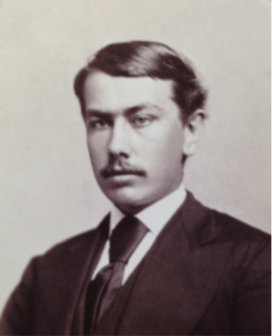
1849-1913
Hometown: Phillipsburg, N.J.
Height: 5' 10"
Weight: 163 lbs.
Other intercollegiate sports: none
Occupation: law
Mixsell demonstrated a warm heart and endearing self-deprecating humor in his written updates for classmates over the years. During the 1869-70 academic year when the “first game” was played, Mixsell’s roommate at 5 East College was teammate Charlie Darst. Mixsell studied law and practiced most of his life in Phillipsburg, N.J. At the same time, he served as a director or officer of several corporations and public utilities in Phillipsburg and nearby Easton, Pa. He married in 1880 and had three sons. He died while undergoing surgery in New York City.
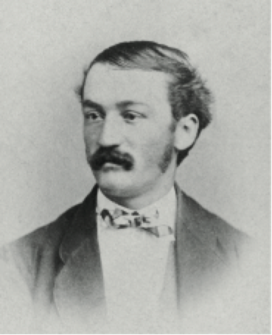
1844-1912
Hometown: Hummelstown, Pa.
Height: 5' 8"
Weight: 145 lbs.
Other intercollegiate sports: baseball
Occupation: banking
Nissley played shortstop for the Princeton “first nine” in his freshman and sophomore years, later being replaced by his 1869 Princeton football teammate George Mann. Following graduation, he spent two years engaged in clerical work, then another two in the mercantile business. After a respite for “impaired” health, he worked as a teller for the Hummelstown Bank, became active in the Lutheran church, and taught Sunday school. In 1882, Nissley became the cashier for the newly opened Farmers Bank in Middletown, Pa. For the eight years preceding his death, he worked as a bookkeeper for the Empire Bottle Works. Nissley committed suicide at his place of work, unmarried and survived by four brothers and a sister.
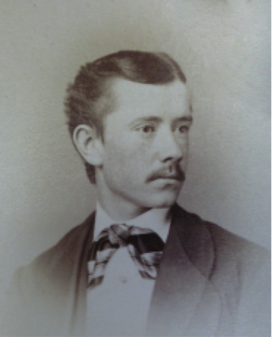
1850-1920
Hometown: Uniontown, Pa.
Height: 5' 9"
Weight: 130 lbs.
Other intercollegiate sports: gymnastics
Occupation: engineering, manufacturing
While participating in intercollegiate gymnastics, Olly also played intramural baseball for the Class of 1870. In Rutgers Football (2008), Michael Pellowski describes Oliphant as a “phenomenal all-around athlete,” even placing him next to teammate J. Edwin Michael as “Princeton’s other secret weapon.” His class obituary described Olly as “lithe and graceful as a Greek model, a face lighted with a winsome smile.” After graduation he studied railroad and mining engineering. During the 1880s he was an executive for the South Pennsylvania Railroad Company. After this he worked in pottery manufacturing, which was a major industry in his adopted hometown of Trenton. Oliphant was married in 1880 and fathered three sons and a daughter.
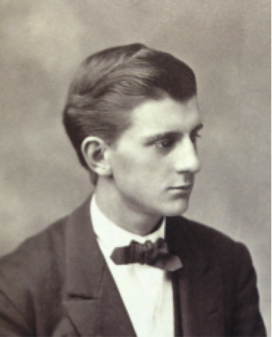
1848-1917
Hometown: Freehold, N.J.
Height: 5' 10"
Weight: 172 lbs.
Other intercollegiate sports: gymnastics
Occupation: law, banking
Parker was the son of New Jersey Gov. Joel Parker. He won the Thomson Prize as the best heavyweight gymnast in 1870, and a later class obituary remarked: “What muscle stood out on that arm.” He studied law and was admitted to the bar in 1873. Parker was married in 1877, and the couple had six children, one of whom died in infancy. After practicing law for 10 years, he organized and became president of the First National Bank of Manasquan. He was also the president of his Presbyterian church and his town’s school board. Parker was injured while playing a sport at Princeton — sources differ whether that sport was football or baseball — and this eventually resulted in the amputation of his lower leg in 1913.
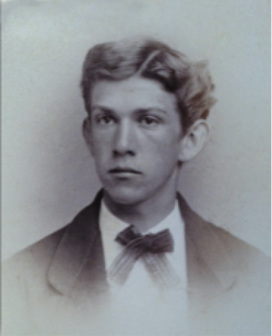
1852-1928
Hometown: Philadelphia, Pa.
Height: 6' 0"
Weight: 170 lbs.
Other intercollegiate sports: baseball
Occupation: business
Born in Millville, N.J., Sharp attended the West Jersey Academy in Bridgeton. He was the starting catcher for the Princeton intercollegiate baseball team. After graduation he worked in a number of businesses. First was the W. B. Rosenbaum glass manufacturer in Malaga, N.J. He then worked as a clerk for iron producer R. D. Wood & Co. Thereafter he was an agent for the Pittsburgh Glass Company and a clerk with a paper manufacturer. After that he worked for the Northern Pacific Railroad before moving to Winnipeg, Canada, and Johannesburg, South Africa, where he again worked in railroad construction. By the time of his 50th reunion, he was writing from London about having nearly died from blood poisoning until doctors amputated his leg and removed all his teeth. He lived another eight years. Jerry was married in Philadelphia in 1874. Princeton’s Jerome E. Sharp Scholarship was founded in 1950 though a donation from his estate.
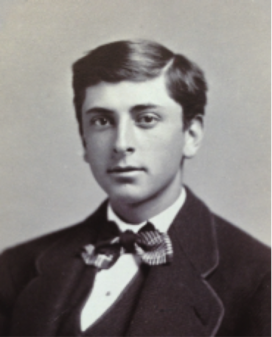
1850-1933
Hometown: Burlington, N.J.
Height: 6' 1"
Weight: 168 lbs.
Other intercollegiate sports: baseball
Occupation: director, Drexel Institute
Van was a perennially popular member of the Class of 1871, distinguishing himself as a fine baseball player, and later as a class officer. He was the captain of the 1870 football team, leading his team to victory over Rutgers in the only intercollegiate game played that year. The captain of Princeton’s intercollegiate baseball team in his senior year, he later became a competitive tennis player. On three occasions in the 1880s, he reached the finals of the fledgling U.S. Open, playing in the doubles competition. Van was the scion of a wealthy Philadelphia family, and he married the daughter of the founder of what is now Drexel University. The two were known for their patronage of arts and culture, and he became the president of the Philadelphia Orchestra Association. He was a major figure at Drexel and served on Princeton’s Board of Trustees.
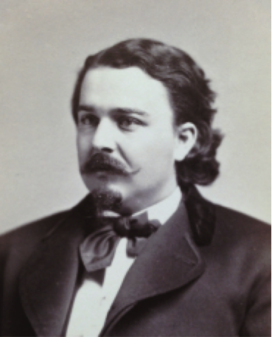
1849-1911
Hometown: Owensboro, Ky.
Height: 5' 11"
Weight: 180 lbs.
Other intercollegiate sports: none
Occupation: law
Weir’s name was a curious late addition to the 1869 roster compiled in 1911 by Princeton graduate and famed football historian Parke H. Davis 1893. Nonetheless, the “Colonel” is described in several other sources as a beefy Southerner who played in the famed “first game.” At the time of the 1869 football season, Weir lived at 29 East College, which was next door to team captain Will Gummere and star football player “Big Mike” Michael. He was a junior orator for the American Whig Society, the liberal debating society at Princeton. Weir was married and had six children. After graduation he practiced law, residing on a six-acre gentleman’s farm adjacent to his Kentucky hometown. He cultivated fruit and raised chickens that he showed at county fairs.
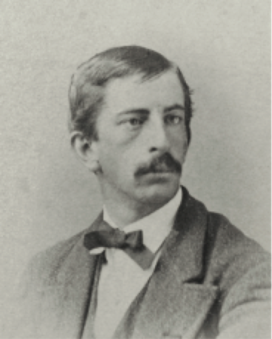
1848-1909
Hometown: New York, N.Y.
Height: 5' 8"
Weight: 150 lbs.
Other intercollegiate sports: gymnastics
Occupation: business
In 1871, Young won the Thomson Prize for lightweight gymnastics. Tom was successful in business after graduation, holding a membership as a broker at the New York Stock Exchange. Described by classmates as possessing “habitual modesty,” he retired young and lived quiety between a house in Manhattan and a country home in Oyster Bay, Long Island. He was married, had a daughter and son, and later served as an officer for the Class of 1871.
Promising Candidates for the 25th Man
David Nathan ’90’s dive into early football history sparked a search for an unknown Princeton player from 1869, college football’s first season. Below, Nathan compiled his 12 most promising candidates from a list of more than 300 students enrolled at the college that fall.
Agnew, Robert 1870: played intramural football, institutionalized after graduation.
Brown, Thomas Bruen 1870: one of two students named Brown, and a “Brown” was mentioned in a description of the post-game dinner in the second game in Princeton on Nov 13, 1869.
Brown, Glynn 1870: the other Brown that year, listed in 1869-70 catalogue but left before graduation.
Chambers, James 1872: played intercollegiate football in 1873 while at the Princeton Theological Seminary, same last name as listed 1869 player.
Davis, Edmund 1870: played baseball with others of the first 25.
Ewing, Samuel Evans 1872: an important athlete, mentioned as the star football player in 1872.
Glenn, Thomas 1871: brother of 1869 player, Princeton’s star baseball pitcher, died young.
Johnson, Arthur 1872: football captain in 1872 and chairman of the committee to rewrite the rules of the game.
Pell, Arthur 1873: an important athlete, including in football, the only freshman to play in Princeton baseball's “First Nine” in Spring 1870.
Swenk, Thomas 1870: noted for playing football for his class against '69 and '71.
Terbell, Edward 1871: friend of several known 1869 football players.
Ward, Frank A. 1870: played baseball with other known 1869 football players.











No responses yet